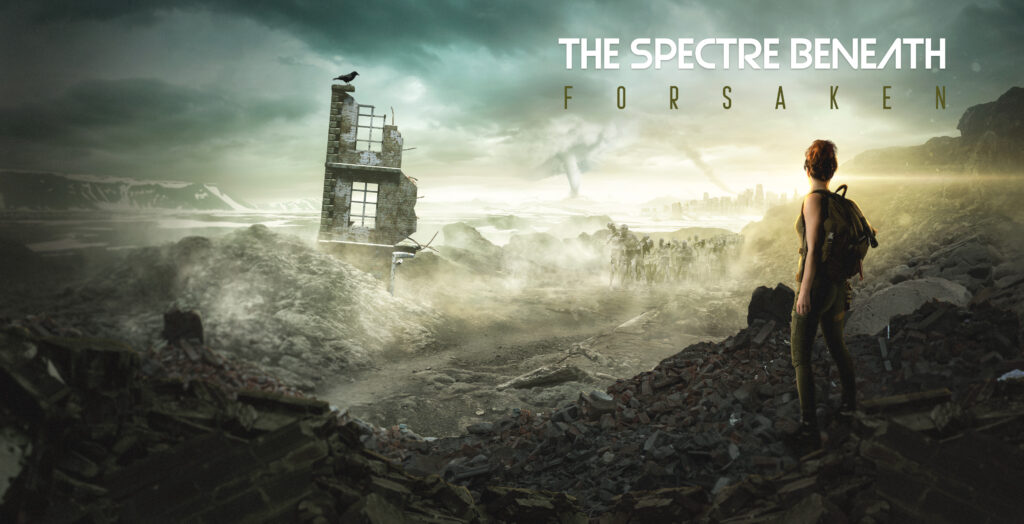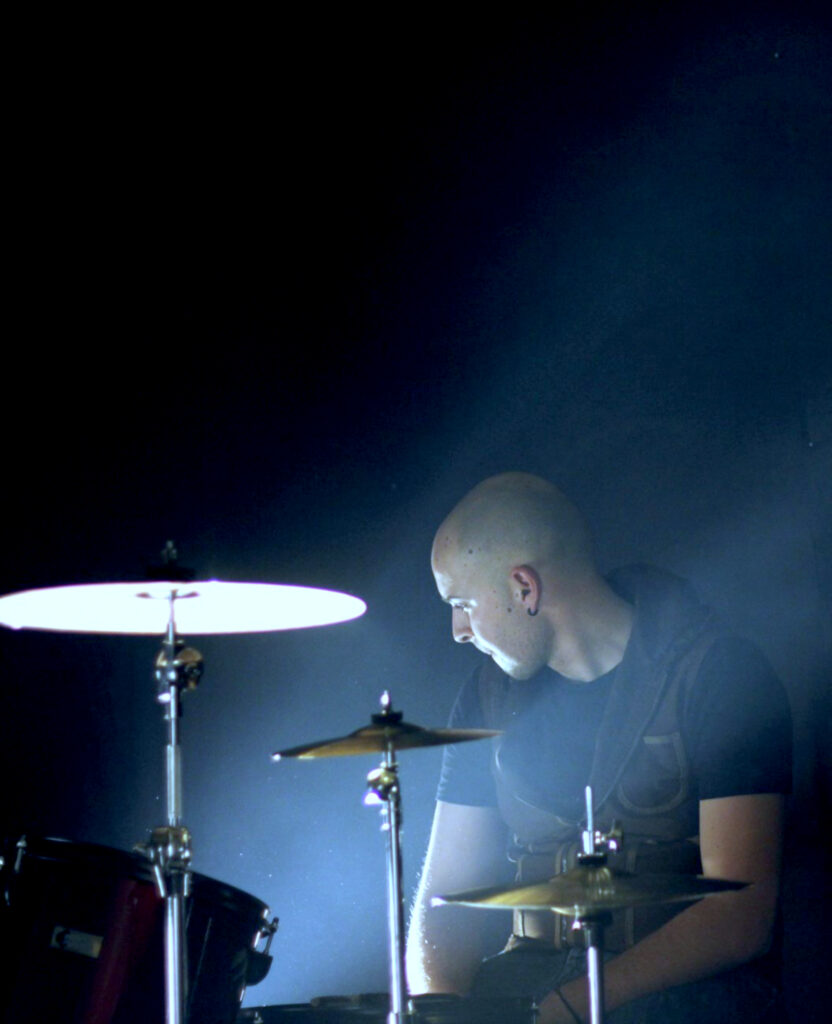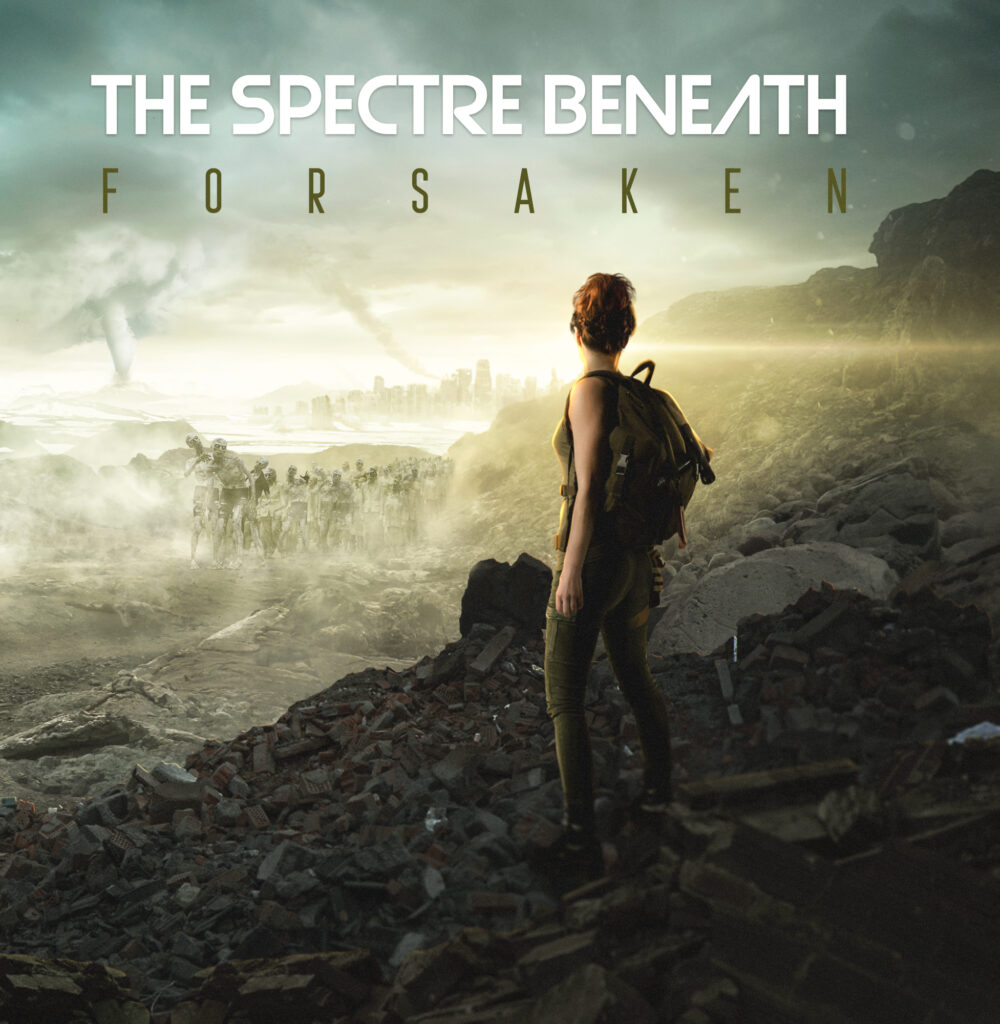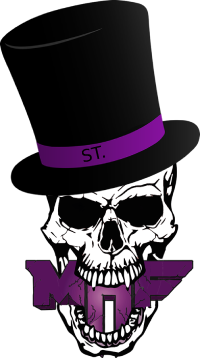
What was the beginning point for your music career? How did it all start?
I come from a musical family in the North West of England and I had piano lessons from the age of seven until thirteen. I was playing classical music until I heard Iron Maiden. In fact, it was the song Invaders off The Number of the Beast which changed my life, things were never the same after I heard that track. I loved the Smith and Murray combination and wanted to mimic that rather than continue to tinkle waltzes on the ivories. So, much to my parent’s chagrin because they hated metal, I ditched the Piano and picked up the guitar. My Nan had given me £100 a few months earlier so I decided to user that and purchase a guitar as I knew my parents would never buy me one. My first guitar cost £95 and that included a distortion pedal, a chorus pedal and a book of chords, oh yeah, and a plectrum. It was like an addiction after that and I joined my first band.
Was there any bumps on the road? What kind of challenges did you have to deal with?
Trying to get people to listen to your music. When you’re just starting out, people have that perception that you’re rubbish and can’t play and are genuinely surprised when they find out you can, but that seems to be as far as it goes. When you’re on support slots, the room is half empty because no one really cares and when you post your stuff on sites dedicated to either the music we play or specifically female fronted forums etc… and groups that has +10k members, still no one really bothers. It’s frustrating but that’s the way it is, you have to keep plugging away because you never know who might be listening tomorrow. That’s how we got signed to a label, it just took one guy on French radio to hear us and get in touch.
What was the most fulfilling and satisfying moment so far?
The feedback we received for our debut is definitely up there because we did the best we could with the resources we had and had no expectations, but I think, for me personally, it was using the pandemic and lockdown to write and record the follow up album which then got picked up by the epically named WormHoleDeath Records. It was an affirmation we were doing something right. We weren’t looking to get signed, it just sort of happened. A guy who runs a French radio station sent me an email suggesting I email his friend who has a record company. It was as simple as that. It just goes to show, you never know who’s listening.
How would you describe the music that you typically create?
We were called Power/Prog metal in the first ever review for our debut album and it’s probably a fair summing up. If you like power metal and progressive metal but don’t want to go too far in either direction, The Spectre Beneath maybe for you. Definitely all clean vocals to allow the melodies to shine and to allow big harmony choruses. We certainly have fast songs and lots of melody but also longer more involved tracks. However, under the surface there is certainly an undercurrent of thrash especially with
the pace and twisting riffs as I’m a big fan of bands like Overkill, Forbidden, Testament and Annihilator. I like to think it’s that element which stops The Spectre Beneath from falling too far into the tropes of Power Metal and the sometimes over indulgence of Prog. We definitely don’t have layers of keyboards either, even though drummer Consta tries to squeeze some in. Apart from some piano and a few atmospheric drones, we try and keep the music riff and vocal focussed.
What is your creative process like?
I’m very riff driven so I tend to jam and come up with a bucket load of riffs and then start piecing them together like a jigsaw until it feels right and one idea transitions seamlessly into the next. One example is the song The Abduction of Olivia Soams from our debut. There are a lot of ideas in those six minutes but, for me, none of them are jarring and they do all sound as if they should be from the same song. Once I have the bare bones of a track in both riffs and structure, Katy and I work on the melodies and alter and change the music to suit. The lyrics are usually the last piece of the puzzle. I am not a big fan of writing lyrics which is odd as I’m an independent author as well. I love the song writing process. The idea of getting a seed of an idea and developing it into a huge track will never get for me.

If you could change anything about the industry, what would it be?
It’ll be easy for me to moan about streaming, Spotify and the like, but I don’t have any theories on how to combat it and I don’t think it’s ever going away, it’s something we have to work with. However, one subject I tend to whinge about, and that’s modern production. With the advancements in technology, you can get a great sound without spending a lot of money, which is great, but, for me, some of the character, rawness and energy is being lost. Albums being overproduced is becoming a bug bear as they sound too good, too clean and thus sound a little sterile, this is metal where instruments are overdriven, why would you want it as clean as possible? Because of this, many bands sound alike because they use the same production techniques and plugins and, as a consequence, lose part of their identity. Even though their music sounds good, there’s nothing to set it apart from other bands in their genre. What ends up happening is the fan/listeners is getting the same experience from not only one band who uses the same settings every album, but all the other bands who have similar settings. Certainly, from my perspective, fatigue soon kicks in because it feels like you’re getting the same thing over and over. What The Spectre Beneath tries to do is change the guitar and bass tones for each release so at least it sounds fresh to us and when you hear a song you instantly know it’s from a particular album just by the production of it. As well as that, the layers of keyboards some bands adopt don’t, in my opinion, add anything at all, in fact, they simply drown out the guitars, but that could be me because I love guitar riffs, the more the better in my opinion.
If you were asked to give a piece of advice to upcoming bands, what would that be?
Take a bit of time to find people you can work with, don’t just join the first band that comes along or invite the first musician who applies. Being in a band is hard work and you need people you can work with as you will need to rely on each other quite a lot. Surround yourself with positive musicians who have that, “yes, let’s try that”, attitude.
What has been the best performance of your career so far?
This is very low key but I was in a band who were good mates with an Iron Maiden tribute act. They played a gig at a club and they went down like a lead balloon, they were nearly chucked out. They were booked to play the following week as well. Deciding not to go back, they asked if we would fill in. We less than a week to prepare and we were really worried especially after hearing how badly a Maiden tribute act went down, and they were a great act. Suffice to say, we were on fire that night probably because we were worried we might get beaten up. However, the opposite happened, we went down a storm which was surprising as we mainly played original material and only a couple of covers.
From a recording perspective, The Abduction of Olivia Soams, from our debut album. That song is tough to play. I’m really pleased with what I did on that track.
If you didn’t become a musician, what would you be doing now?
I’m an independent author, horror, thrillers, that type of thing. I’m currently working on my second whodunit, which are quite tricky to put together as you have to work from the end and work backwards. I’d love to be doing it full time.
What is new with the band at the moment? What are you currently working on and would like to share with the world?
We have just released a mini-LP with 6 songs on it. We have the next two albums planned out and we would say 70% of it is written. There are some killer riffs in the mix, fast songs, moody songs and lots of interesting stuff. After two and a half years without releasing anything we are keen to get more music out there. We’d like to finish writing the new full-length and get it recorded hopefully by the end of the year but at least no later than Easter 2024.



